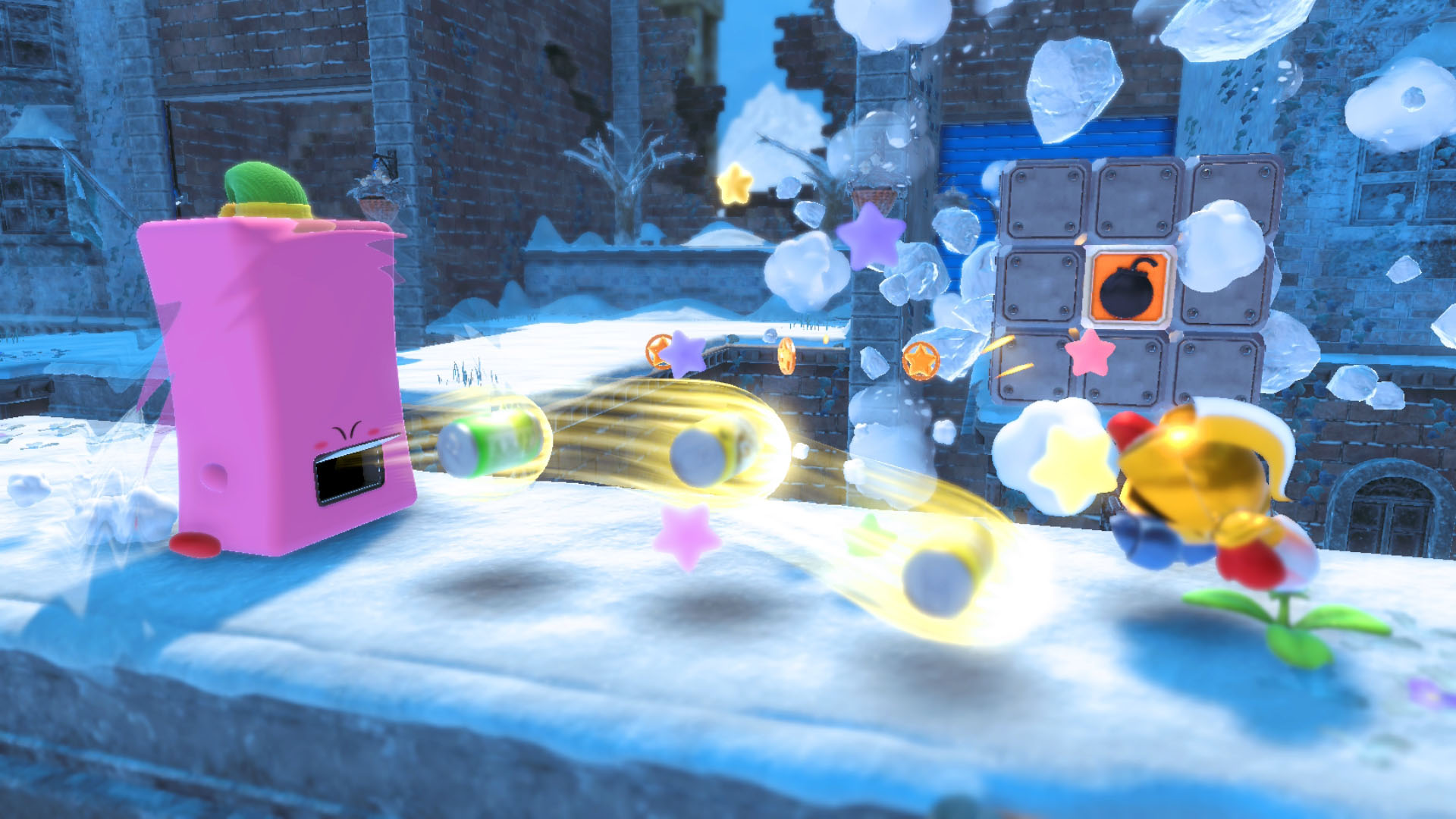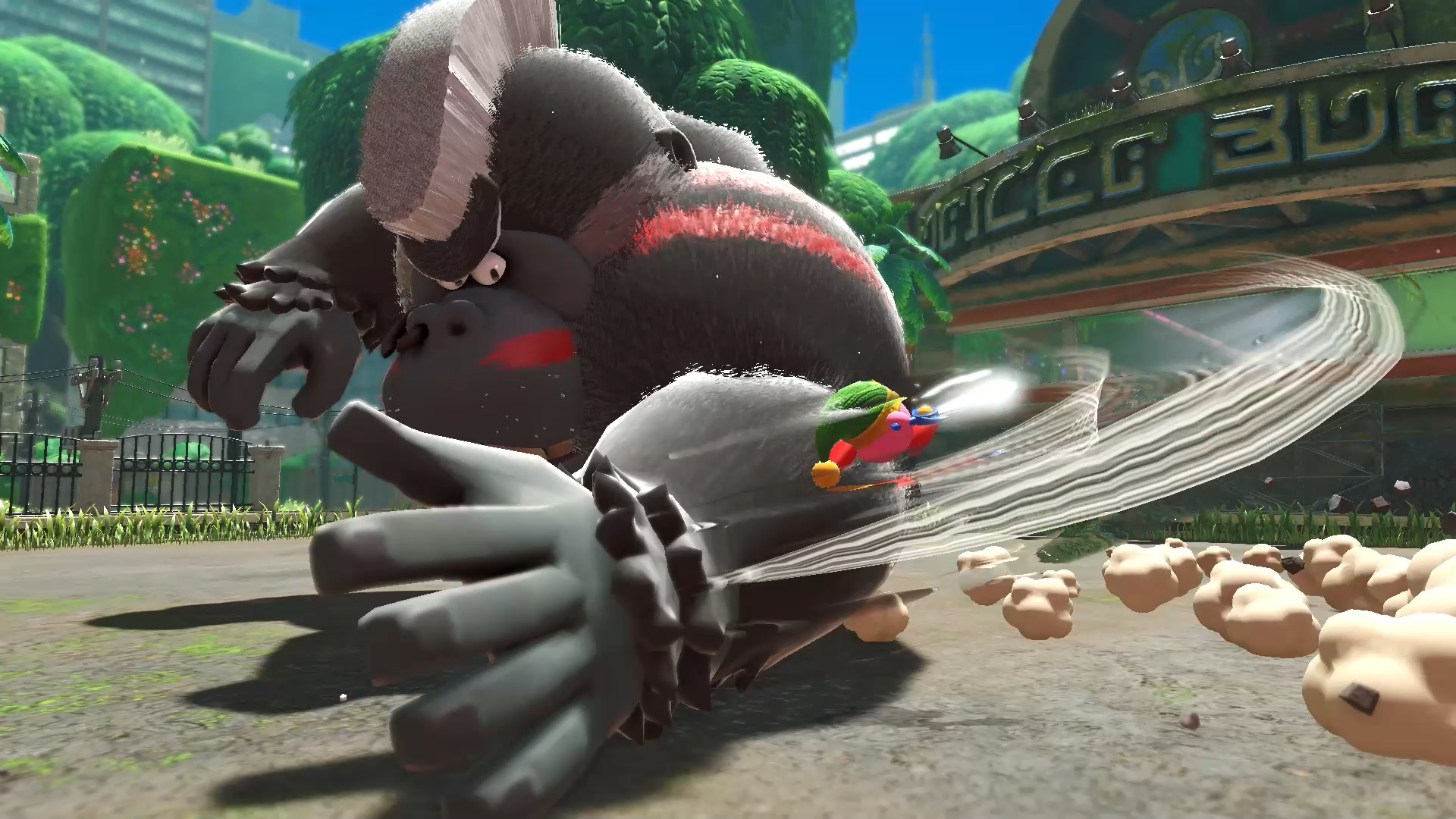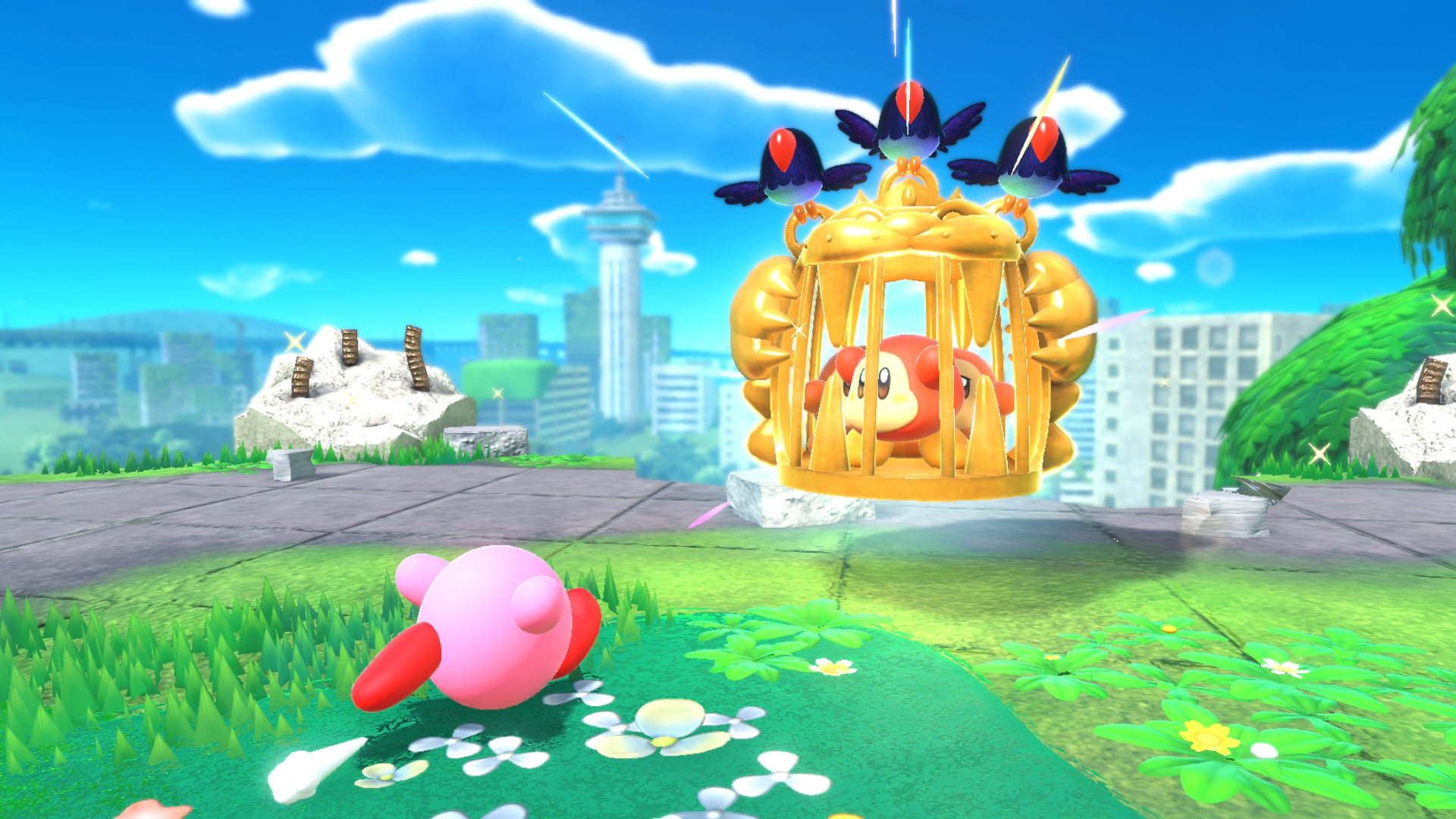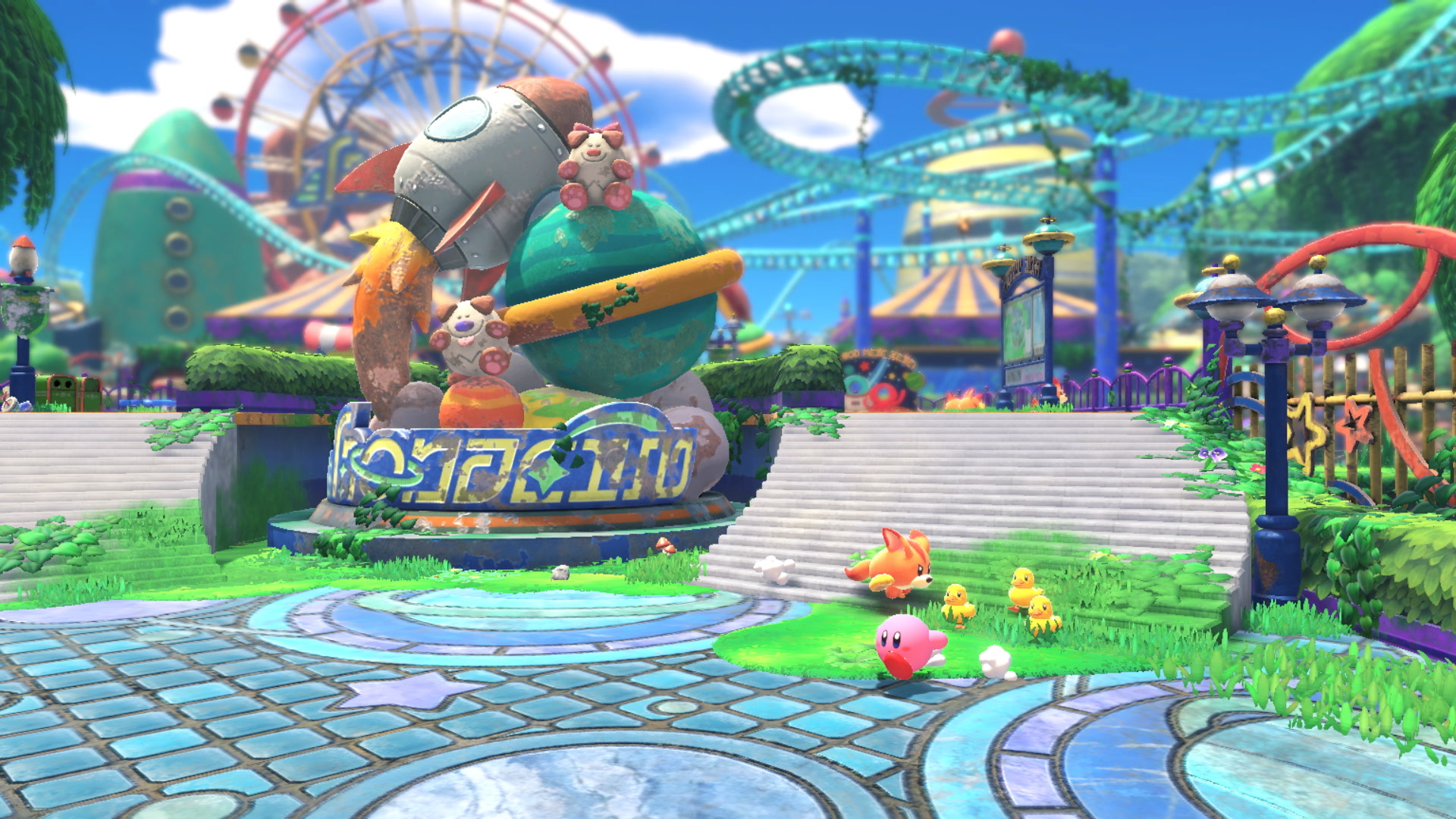Kirby has long been a franchise beloved by fans, but it hasn’t quite garnered the global appeal that other Nintendo franchises have. Having been absent from the Switch for a few years now, Kirby and the Forgotten Land looks to accomplish this goal, and while it doesn’t reinvent the wheel, it may just be the perfect game to do this.
Kirby and the Forgotten land is the first game in the puffball’s franchise to enter the 3D realm, and the change is welcomed. Taking the typical Kirby formula from 2D to 3D platformer is something that will offer immediate familiarity for players that have grown up in the era of more modern Mario titles, broadening its appeal.
Like 3D Mario games, in Kirby and the Forgotten Land, you’ll head out to collect items, in this case, Waddle Dees, to progress through levels. In each stage, there are Waddle Dees out in the open, as well as those that are hidden from plain sight. This variety serves as the perfect way to help new players easily progress through the game but also provides further puzzles and hidden surprises for those willing to take the time to find them all.

Core gameplay mechanics remain largely the same from Kirby’s previous titles, with players inhaling foes to adopt their powers and using them to progress through the platforming puzzles and dispatch a variety of enemies.
The Forgotten Land brings in a new gameplay feature to the franchise called Mouthful Mode. Now, players can swallow and take on the abilities of larger objects like cars, traffic cones, vending machines, and more. With its 3D perspective, these abilities get a lot of mileage, both in progressing through levels and for unlocking secret rewards. Mouthful Mode is a great addition that offers more versatility to gameplay, offering a welcome change from previous Kirby games.
Throughout the campaign, you’ll encounter both unique and familiar characters from the Kirby franchise. That being said, once you approach the end, it’s hard not to notice how many of the fights are in fact rematches against previously fought foes. Like bosses, late-game enemies do get quite repetitive, but thanks to the platforming variety, you never truly feel like you’re playing through the same content.

Boss fights are key to progressing through Kirby and the Forgotten land. At the end of each zone, you’ll face off against a boss before you can continue, and for the most part, the fights are simple. You’ll have the option of adopting one of three powerups before taking them head-on. However, in a lot of cases, it’s more effective to go in without any powerups and use stars to deal damage.
Once you make it to the later parts of the game, things do get more challenging, especially in the story’s final fight, where your opponent boasts a variety of different attacks which will force you to learn their patterns and carefully time your dodges. While you aren’t going to find Elden Ring levels of difficulty here, there still is some challenge to be had.
Once the story wraps up, you’ll gain access to the post-game, which includes a new zone to be cleared with more rematches, this time with increased difficulty and a few unique twists. While it might not be the most creative way of extending the game’s runtime, it still provides more of the same fun for players with a compelling reason for continuing on. You can also head back into old levels and pick up any hidden Wattle Dees or rewards you may have missed.

As far as the story goes, Kirby and the Forgotten Land has plenty to engage with and keep players immersed, but it isn’t a thought-provoking adventure in any capacity. For the most part, your goal remains the same — saving your friends — but for a 3D platformer like this, that’s all the motivation you need. One thing that the story brings to the table — which excels above anything seen in previous Kirby games — is its cutscenes. These cinematics showcase some stellar animation that seamlessly blend into gameplay.
Visually, the game looks great. If you’re familiar with Nintendo’s work then you likely know what to expect with Kirby and the Forgotten Land, but that’s far from a bad thing. Colors pop on screen, and each zone has its own distinct theme, providing a sense of progression as players work through the campaign.
The one knock on the game’s visuals comes from its performance. In some sections following cutscenes, the game suffers from framerate drops due to the amount of action taking place on-screen. Fortunately, this isn’t a frequent issue, and when it does happen, things usually smooth out after a few seconds.

Kirby and the Forgotten Land is the perfect entry point for new players, and also the ultimate way for longtime Kirby fans to experience this character’s world. With its new gameplay features and a shift to 3D, the core gameplay feels bigger and better than ever, and while there aren’t a ton of enemies, the minute-to-minute action doesn’t get repetitive.
The campaign is short and sweet, but there’s still a ton to do after you finish, and for completionists, more replay value than past Kirby titles. Sure, there are still a few issues and wrinkles, but nothing that will deter you from pushing on to the end.
Kirby’s latest adventure marks the character’s introduction into the 3D platformer space, which is hopefully a positive sign of things to come. While this isn’t quite a perfect game, after a few tries, it wouldn’t be crazy to think Nintendo will get there.
Fantastic
With new gameplay features and a welcome shift to 3D, Kirby and the Forgotten Land is a short and sweet experience with a ton of replayability.
Kirby and the Forgotten Land
